Content
- 1 What is potassium in the body for?
- 2 The role of magnesium in the body
- 3 Potassium and magnesium intake rates
- 4 What foods contain potassium
- 5 What vitamins contain potassium, magnesium and calcium
- 6 Vitamins for seizures
- 7 Potassium and magnesium preparations for the heart and blood vessels
- 8 How to choose the right potassium in vitamins
- 9 Side effects and contraindications
- 10 An excess of magnesium and potassium in the body
- 11 Conclusion
- 12 Reviews of vitamins with potassium and magnesium
Vitamins, potassium and magnesium are necessary for the human body to normalize the work of the cardiovascular system. Together with magnesium, they are used as part of a combination drug therapy. In old age, a couple of microelements are used prophylactically to slow down the natural aging process.
What is potassium in the body for?
The main functions of potassium relate to the work of the excretory and musculoskeletal systems. He is directly involved in a number of vital processes. The trace element comes in the composition of food. Excretion from the body occurs quickly. Therefore, with a poor diet, an additional intake of a substance in the form of a vitamin complex may be required.
The main functions of potassium include:
- maintaining the fluid composition inside the cells;
- ensuring full contraction of muscle fibers;
- support of acid-base balance;
- regulation of kidney function;
- participation in the process of reincarnation of glucose particles and glycogen;
- normalization of digestion;
- providing nervous excitability and impulse conduction;
- saturation of brain cells with oxygen;
- maintaining the required level of intracellular pressure.
Vitamin complexes with potassium content are often prescribed to eliminate seizures and normalize the functioning of the gastrointestinal tract. The need for a daily intake of potassium depends on the level of physical activity of the person. It increases under heavy loads.
Symptoms of a lack of potassium in the body
A condition in which there is a lack of potassium in the body is called hypokalemia. It arises from heavy physical activity and poor nutrition.
The main symptoms of a substance deficiency include:
- tremor of the limbs;
- lack of coordination;
- fast fatiguability;
- increased nervousness;
- muscle weakness;
- heart rhythm disruptions;
- muscle pain and cramps.

The role of magnesium in the body
It is not without reason that potassium and magnesium are considered the best in the composition of complex vitamins for the cardiovascular system. They complement each other's action, accelerating the absorption process. Magnesium not only maintains the required concentration of potassium in cells, but also performs a number of important biological functions. It stimulates the activation of enzymes involved in carbohydrate metabolism and reduces excitation in nerve cells. A lack of substance can provoke serious health problems.
The main functions of a macronutrient include:
- relaxation of the heart muscle;
- fight against vegetative dystonia;
- restoring sleep;
- getting rid of nervousness and obsessive states;
- liquefaction of the stool;
- preventing the formation of kidney stones;
- maintaining pregnancy with a high risk of miscarriage;
- getting rid of edema.
Symptoms of a lack of magnesium in the body
Macronutrient deficiency affects the functioning of the whole organism. Specific symptoms appear that make it possible to identify the problem in a timely manner.
The main signs of a lack of a macronutrient include:
- violation of concentration of attention;
- cramps in the calf;
- dizziness;
- deterioration of the condition of the nail plate;
- drops in blood pressure;
- increased nervousness;
- indigestion.
Potassium and magnesium intake rates
The intake of potassium and magnesium depends on the age of the person. As you grow older, the need for these substances increases. The indicators of the norm increase significantly during pregnancy.
|
Age |
Potassium norm (mg) |
Magnesium norm (mg) |
|
Up to six months |
600-650 |
32 |
|
Seven months to three years |
600-650 |
85-145 |
|
Three to nine years old |
660-1720 |
155-235 |
|
From nine to 14 years old |
660-1750 |
265-585 |
|
14-18 years old |
Girls - 670-1700 Boys - 660-1700 |
Girls - 385 - 695 Boys - 435-745 |
|
18 and older |
Women - 1.8-2.1 thousand Men - 18, -2.1 thousand Pregnant women - 3.4 thousand |
Women - 335-665 Men - 415-765 Pregnant - 410-685 |
What foods contain potassium
Potassium levels in the body can be adjusted naturally by taking control of the diet. Sources of vitamins and potassium are certain foods. These include:
- Sun-dried tomatoes;
- potatoes;
- beans;
- dried apricots;
- avocado;
- prunes;
- spinach;
- salmon;
- pumpkin.
What vitamins contain potassium, magnesium and calcium
In case of an urgent need to replenish the level of potassium in the body, it is necessary to take complexes in which the microelement is presented together with calcium and magnesium. Pharmaceutical companies offer many vitamin complexes with this composition. When choosing a drug with potassium, it is advisable to follow the recommendations in the instructions and composition.
"Doppelherz Active Magnesium + Potassium"
Vitamins "Doppelgerts Active Potassium plus Magnesium" are produced in the form of regular and effervescent tablets. The second option has a pleasant lemon and orange flavor. Effervescent vitamins with potassium and magnesium are aimed at replenishing energy and restoring the functioning of the nervous, cardiovascular and muscular systems.
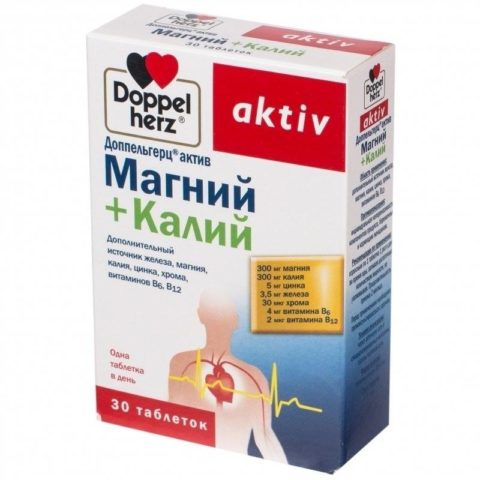
"Vitrum Centuri"
"Vitrum Centuri" is a combined vitamin remedy with a rich content of nutrients. It is taken one tablet a day for three months. The main indication for admission is old age.
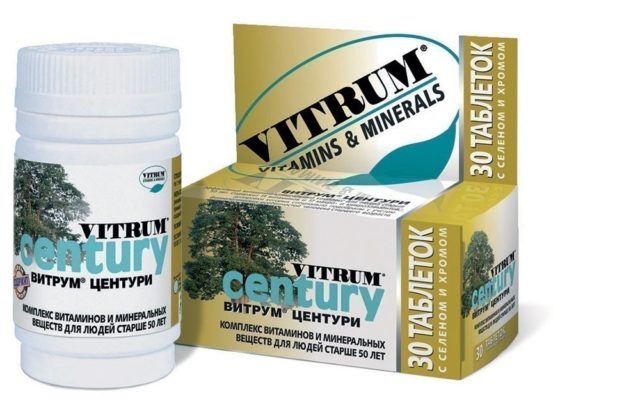
"Terawit Antistress"
The preparation contains vitamin A, Mg and potassium. It provides the correction of metabolic processes and increases the body's resistance to external factors. The tablets are drunk one piece a day for a month.
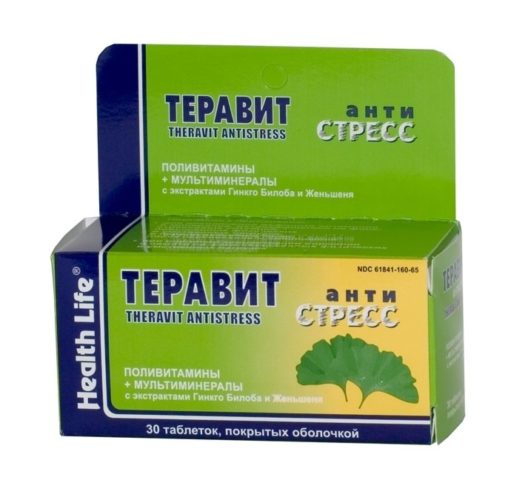
"Vitrum Plus"
The vitamin complex is indicated for taking with nervous tension, poor nutrition and physical fatigue. Vitrum plus is taken one tablet a day, after dissolving it in a glass of water.
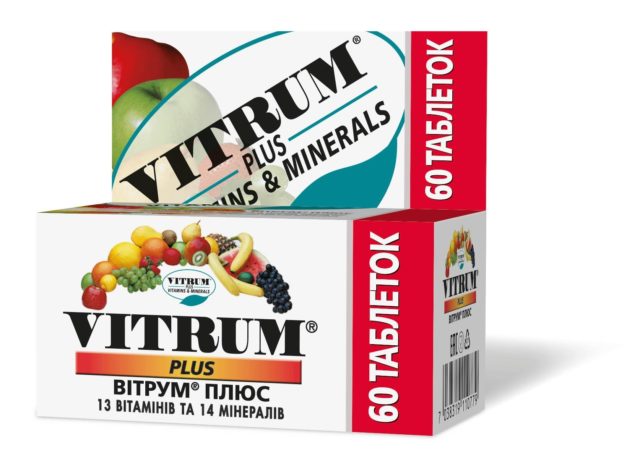
"Duovit"
Vitamins "Duovit" are produced in the form of blue and red dragees. They differ in composition. In the red dragee, the main part of the components is represented by vitamins, and the blue tablets contain macro- and microelements. The drug is taken one tablet of each color once a day.The treatment course is 20 days.

Vitamins for seizures
For cramps, vitamins with potassium and magnesium are excellent. The latter ensures the maintenance of the required concentration of calcium in the body. Potassium helps to achieve the required pressure in the tissues. Sometimes seizures develop together with varicose veins, therefore, when it appears, vitamin complexes with ascorbic acid content are often used.
"Magne B6"
Magne B6 is a preparation containing magnesium and pyridoxine. Due to the presence of the former, it provides muscle contraction and regulates the transmission of nerve impulses. B6 is necessary to improve the absorption of substances. The drug is taken with increased irritability, sleep disorders and excessive fatigue. Side effects of the vitamin include upset stools and abdominal pain.
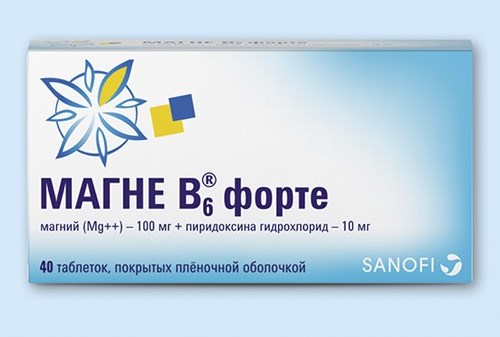
Magnistad
Magnistad is a combined preparation based on Mg and B6. It performs the function of bone mineralization and normalizes the functioning of the peripheral nervous system. The drug is taken 6-8 tablets per day for 2-3 months.
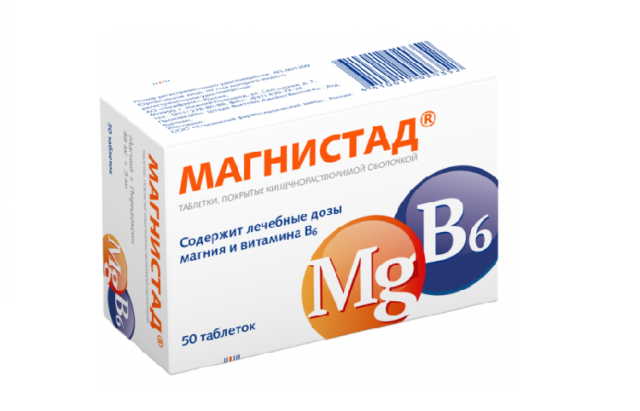
Potassium and magnesium preparations for the heart and blood vessels
Experts say that deficiency of potassium and other elements is one of the most common causes of cardiovascular disease. Most often this problem concerns elderly people. Lack of these substances can be diagnosed by characteristic symptoms. These include increased fatigue and decreased immunity. To strengthen blood vessels and the heart, vitamin complexes with magnesium and potassium are often taken. To get more benefit from them, you should follow the recommendations from the instructions.
"Panangin"
Dietary supplement "Panangin" has the ability to regulate blood pressure and restore heart rate. At the same time, the remedy fights nervous disorders. The tablets are taken two pieces twice a day. The duration of admission is one month.
The "Panangin" includes:
- vitamin B6, Mg;
- potassium.

"Asparkam"
The vitamin complex is based on potassium and Mg asparaginate. This tandem of nutrients keeps metabolic processes under control. By eliminating electrolyte imbalances, it creates a mild antiarrhythmic effect. The drug is taken 1-2 tablets three times a day. The treatment and prophylactic course is 3-4 weeks.
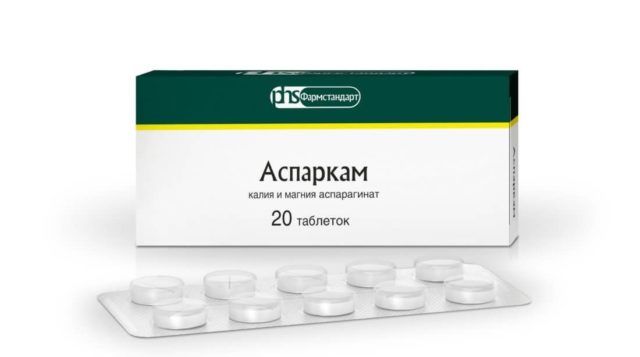
"Orokamag"
Orokamag contains not only magnesium with calcium, but also orotic acid. Essential for the synthesis of amino acids in the body. Among other things, it fixes magnesium in the cells of the human body. Vitamins are taken four capsules three times a day. The duration of admission is 1-1.5 months.

How to choose the right potassium in vitamins
Lack of potassium in the body often leads to heart rhythm disturbances and is often the cause of acute myocardial infarction. To avoid unforeseen complications, you should take vitamin complexes with potassium content. They come not only in tablet form, but also in the form of a solution for injection.When choosing, it is advisable to pay attention to vitamins with potassium and manganese. This combination of nutrients provides protection against the development of cardiovascular disease. Manganese helps to restore muscle tone and normalize the genitourinary system.
The selection of a vitamin complex with potassium is carried out after passing an analysis to determine the level of a substance in the body. Based on the result, the doctor will select the appropriate dietary supplement.
Side effects and contraindications
Before taking vitamin complexes, you should read the contraindications. Among them stand out:
- lactose intolerance;
- hypervitaminosis;
- allergic reaction;
- acidosis;
- pronounced dehydration of the body;
- violation of amino acid metabolism;
- renal failure.
To avoid side effects, it is necessary to take into account the compatibility of vitamins and microelements with each other. Potassium is compatible with vitamin B2. It is not recommended to combine it with groups A and E. The interval between taking these substances should be at least four hours. Macronutrients are perfectly compatible with calcium, but they can interfere with the absorption of vitamins B1, E and P.
With improper use of the vitamin complex or overdose, the following side effects may occur:
- stool disturbance;
- dizziness and nausea;
- intestinal colic;
- allergic reaction.
An excess of magnesium and potassium in the body
With certain diseases and improper intake of vitamins, an excess of potassium and other substances may occur. Most often, the problem develops against the background of renal failure.
Symptoms of a magnesium and potassium surplus include:
- arrhythmia;
- dizziness;
- fast fatiguability;
- violation of respiratory function;
- problems with coordination and speech;
- disruption of the kidneys;
- indigestion;
- dyslexia;
- impaired blood circulation.
Conclusion
Vitamins, potassium and other substances are extremely necessary for the human body. They support the work of the cardiovascular system and prevent nervous disorders. To get more benefit from vitamin therapy, you should follow the rules for taking medications.

